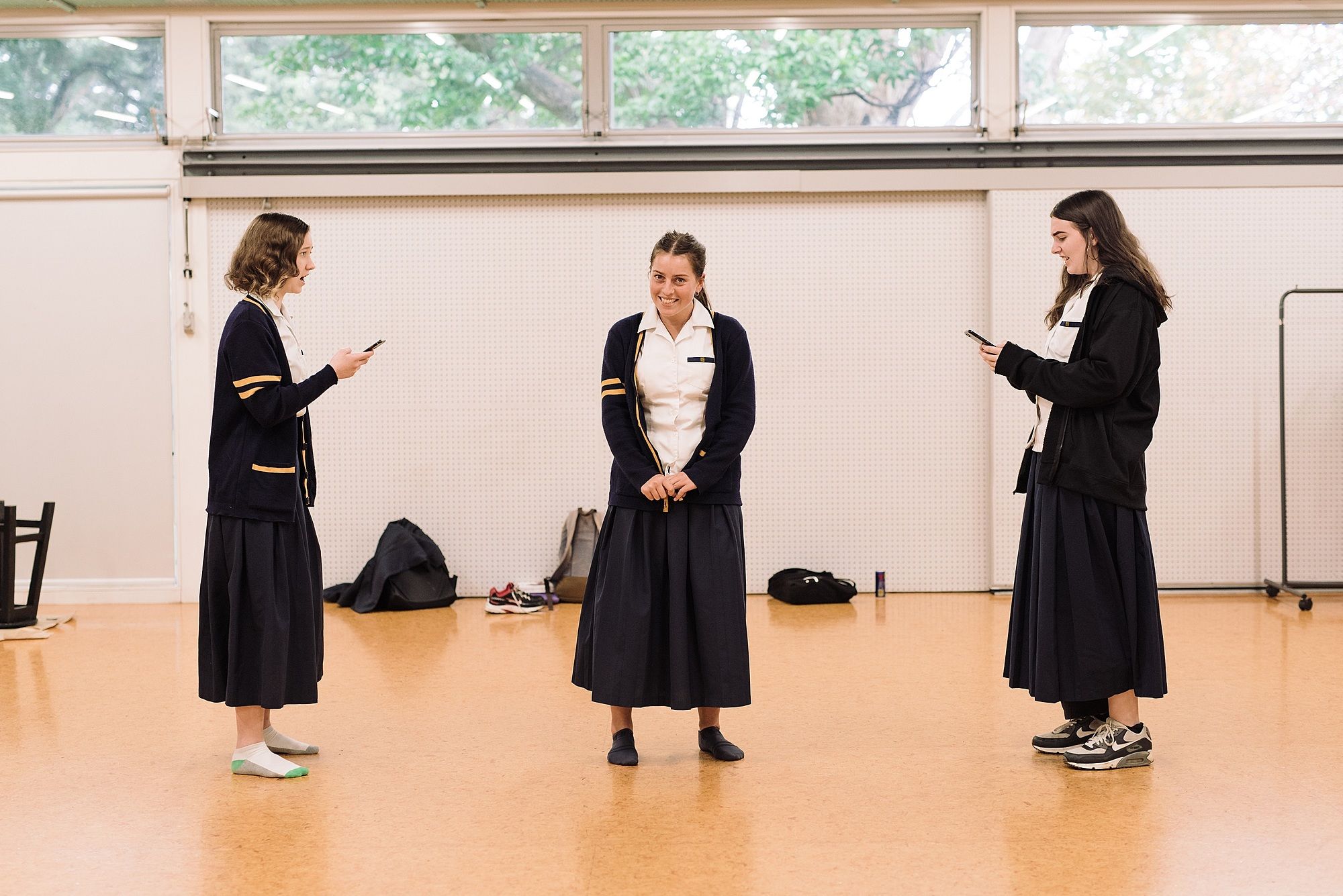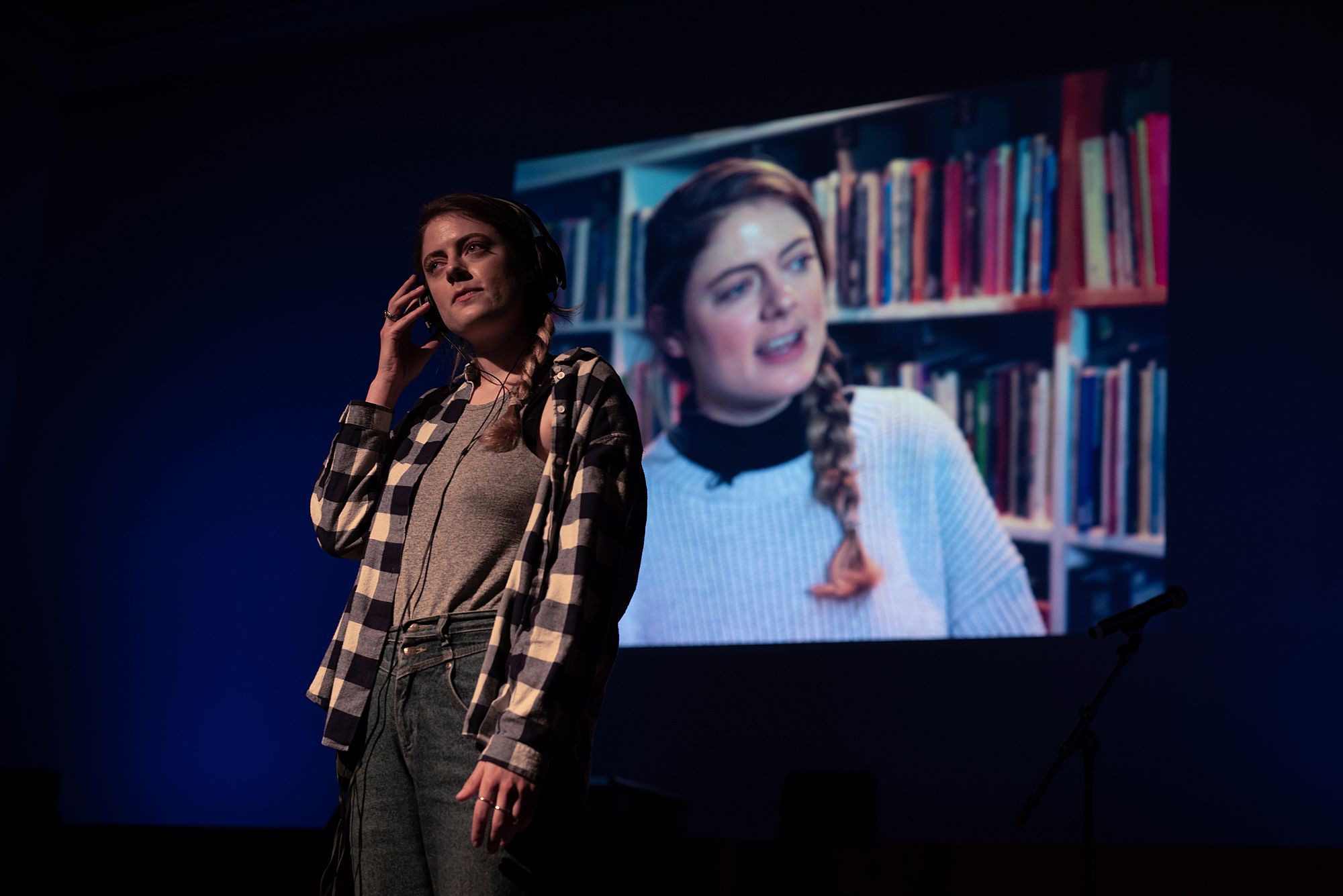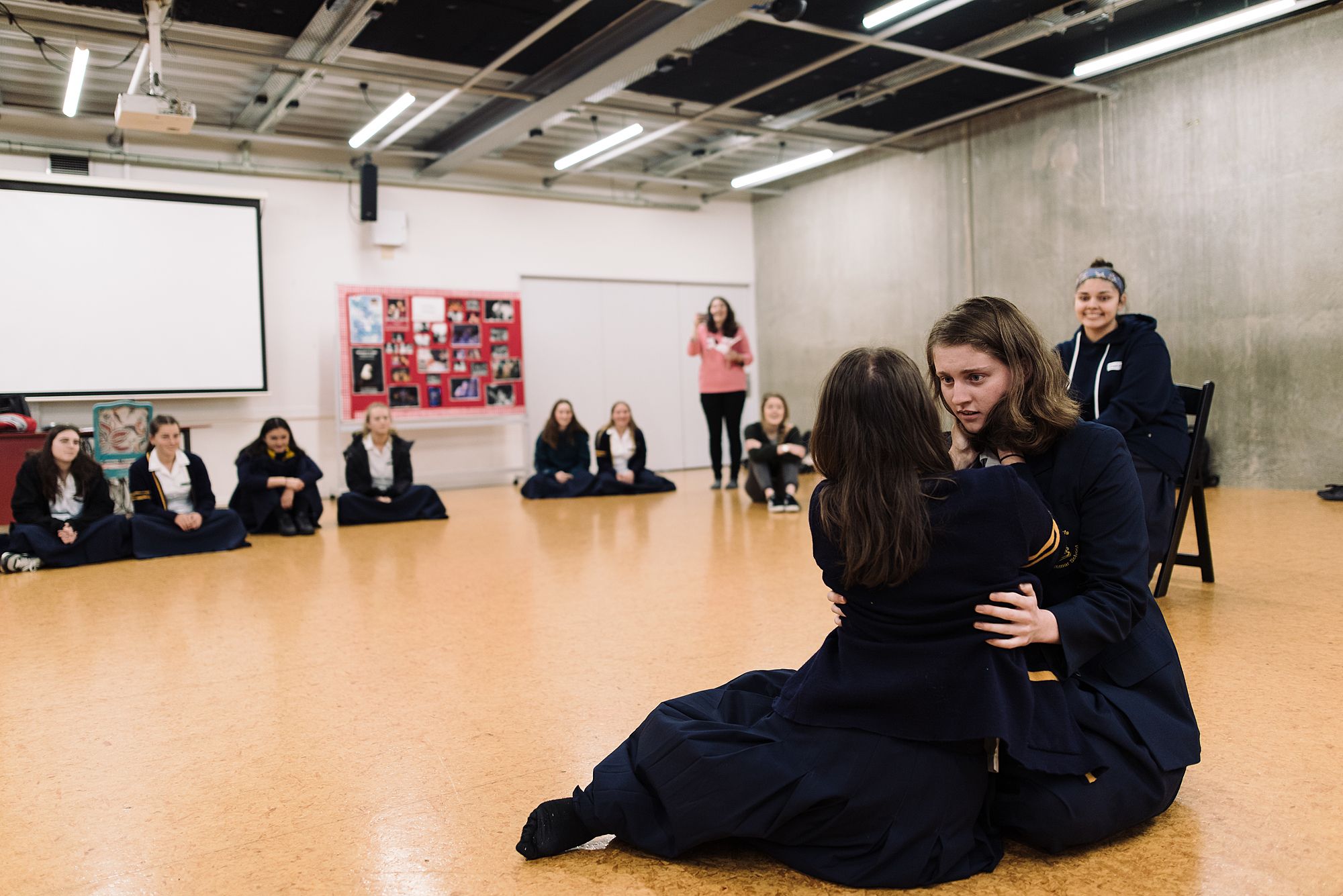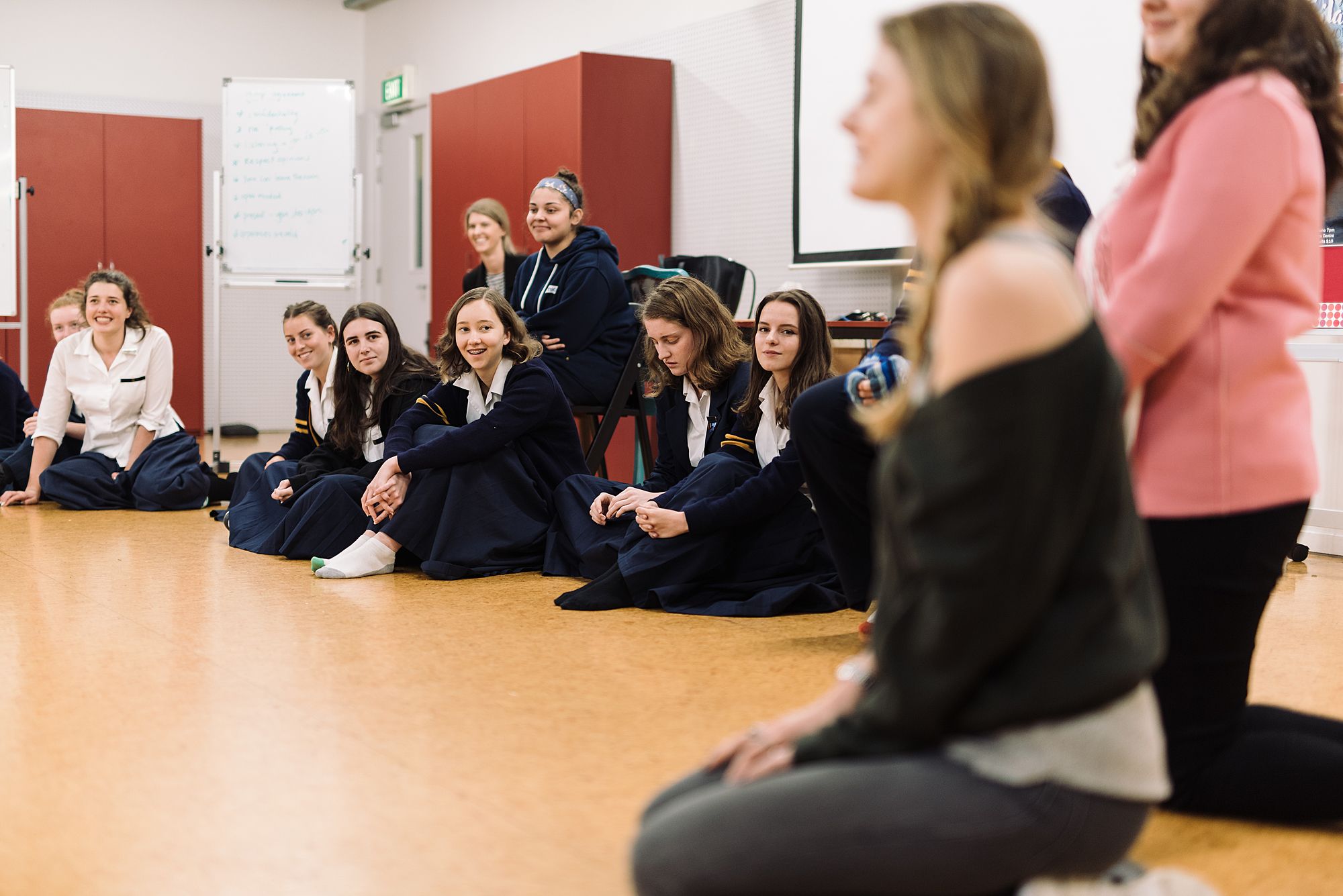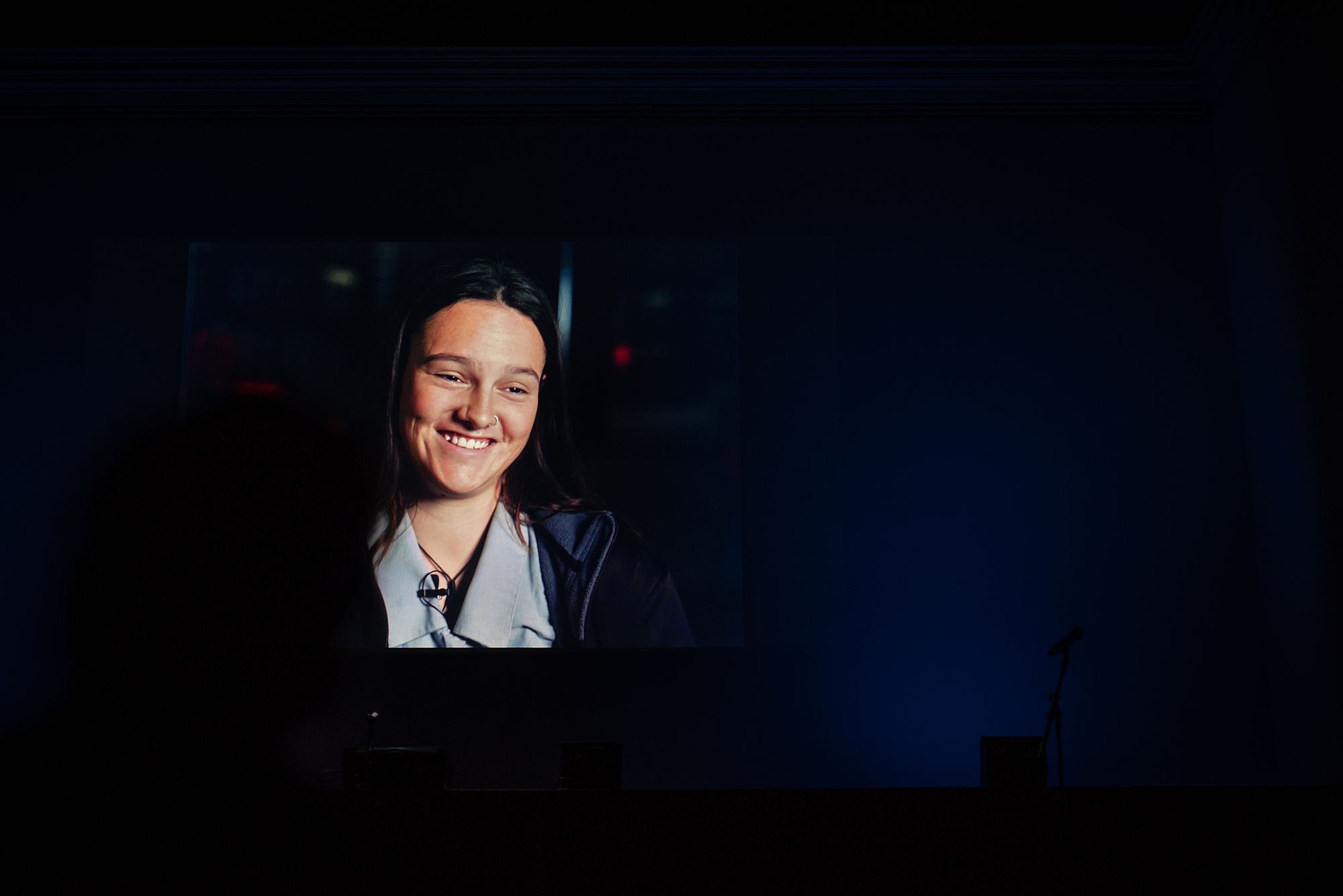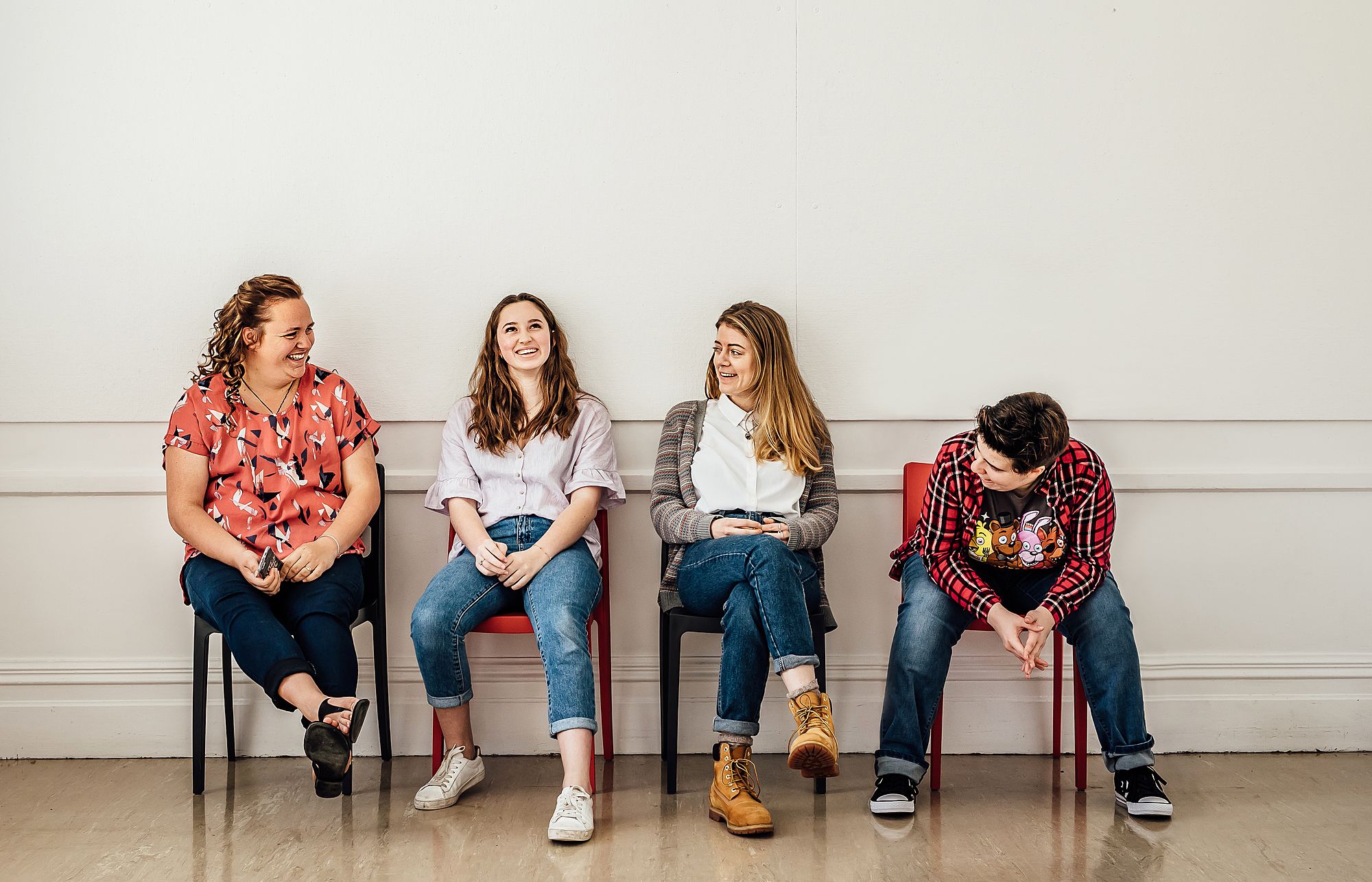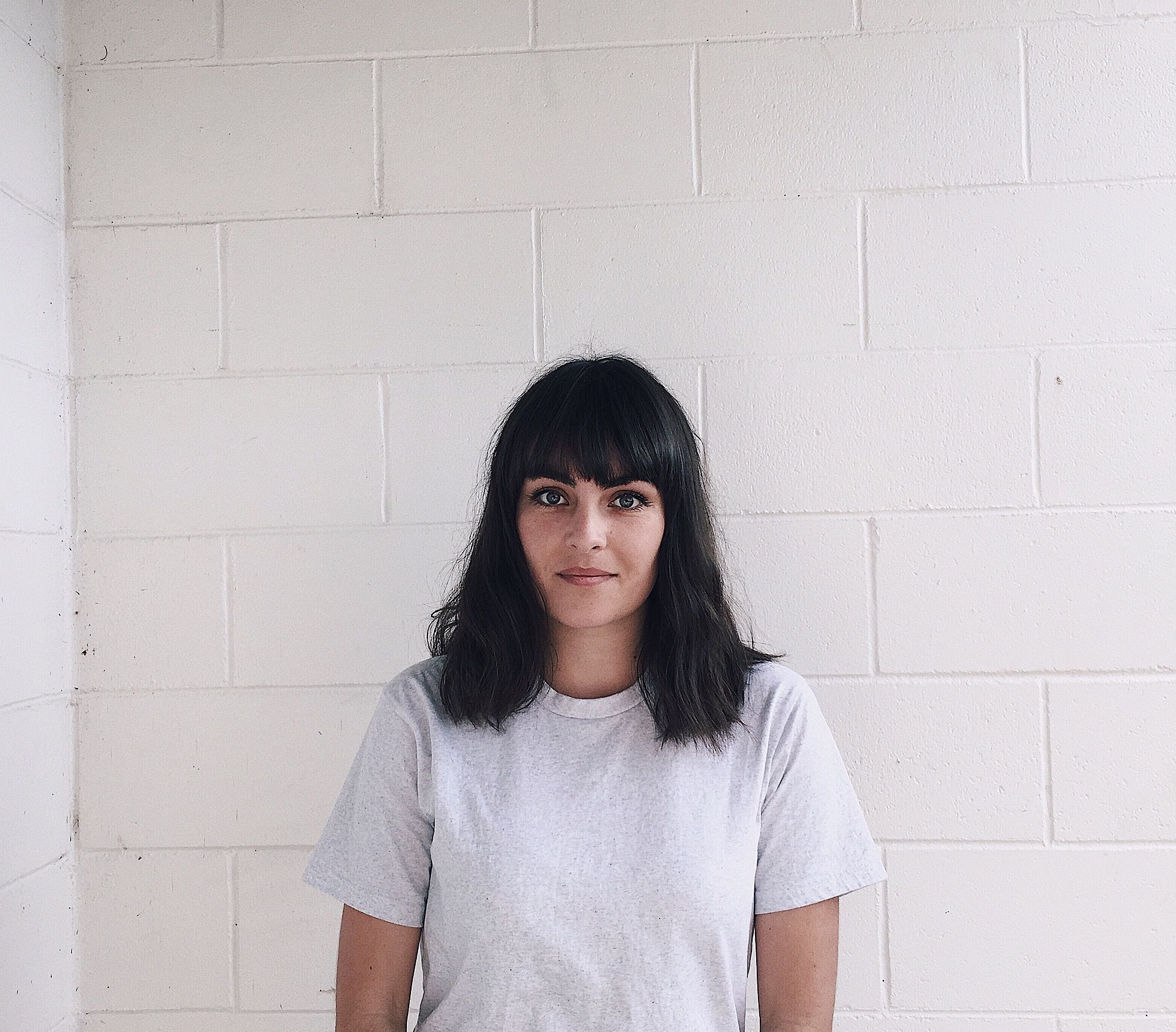We Need To Talk About Sex In Schools
Our schools are struggling to cover consent and sexual violence in relationships. Can artists and outsider educators help our poor statistics, or are they just getting in the way? India Essuah investigates.
Our schools are struggling to cover consent and sexual violence in relationships. Can artists and outsider educators help our poor statistics, or are they just getting in the way? India Essuah investigates.
Sexual harassment is rife in our country’s institutions. Parliament is the latest workplace shown to be laced with harassment, with few policies in place to counter skewed power dynamics. Students have recently described how Dunedin’s Knox College fosters a culture of harassment and entitlement, leaving affected students fearful of being ostracised if they speak out about the way they’ve been treated. A recent analysis of reporting processes at multiple universities showed them to be unclear and confusing, with Auckland University’s guidelines even suggesting a confrontation with the perpetrator.
Last July, the United Nations Committee on the Elimination of Discrimination against Women released recommendations for addressing high rates of sexual and intimate-partner violence in Aotearoa, which disproportionately affects women who are younger, Māori, LGBTQI+, and/or living with a disability. Among the committee’s concerns was the “lack of inclusion in school curricula of comprehensive, culturally sensitive and age-appropriate sexuality education, or education on harmful practices and gender-based violence”. To reduce this, they called on the Government to “take the legislative and policy action and allocate adequate resources necessary” to ensure high-quality sexuality education is available and compulsory in all schools.
Yes Yes Yes, co-created by director Eleanor Bishop and performer Karin McCracken, is a piece of participatory, documentary theatre that aims to open up conversations about consent, sex and rape culture for young people in schools. The production collects and presents snippets and stories from high-school students’ real lives to make these conversations more accessible for students, pushing past well-intentioned but often simplistic messages around consent to better reflect the messier dynamics at play in real life – dynamics that students have to learn to deal with on a daily basis.
Yes Yes Yes is a reimagining of Jane Doe, which Bishop developed during her time at Carnegie Mellon University School of Drama, after moving to the United States in 2013. Her arrival coincided with public attention turning to the prevalence of sexual assaults on US college campuses. Jane Doe follows a trial that takes place after one such assault: a woman blacks out at a campus party and is raped. Audience members are invited to read the parts of witnesses and lawyers, and respond anonymously to text polls, which are displayed on a screen. Other documentary elements include interviews with students, news clips, and anecdotes from McCracken about navigating sex, consent and sexuality, with references to touchstones like The Notebook.
Jane Doe has since won awards throughout the UK, US and New Zealand, and critics and audiences have called for it to be shown in high schools. “I would really like to see this work in what feels like, to me, its home – in gyms in high school or university spaces, with conversations exploding after it,” says Kate Prior in The Pantograph Punch’s review of the production’s 2017 Auckland season.
Having worked as an educator with Wellington’s Sexual Abuse Prevention Network, McCracken knew that the show would need to take quite a different approach to engage with a younger audience. “We knew the content needed to be a lot more positive,” she says. “We needed to show what consent actually looks like, instead of the scary stuff – the consequences if you get something wrong. The research shows that that isn’t actually an effective way to teach young people.”
She and Bishop wanted to show two kinds of encounters, each one looking at how people consider each other’s “consent cues”, body language and expressions. “We wove that into a story ostensibly about me meeting someone one night and sleeping with them, and how that happened,” McCracken explains. “We also wanted to have an example of a situation involving assault, because we wanted to role model how you can talk to people about experiences that they’ve had, if they decide they want to talk to you, and role model how, if something at your school or community happens, you can be a responsible third party.”
Bishop and McCracken interviewed students from a wide range of backgrounds and workshopped the play with students from Epsom Girls Grammar and Papakura High School. Their voices are woven through the show to give students a voice, McCracken explains, “instead of it being a random 28-year-old on stage talking to young people.” There are also points in the show where students are invited to read, or text in, their responses to a poll. “The students were really generous and shared with us how they felt about dating and sex and healthy relationships, and we used a lot of that perspective in how we built the content of this show,” she adds. A facilitator from Rape Prevention Education also helped with the process, “[holding] that trickier content, if it went down that road, really safely.”
“We were seeing various agencies across the country who were really committed to providing best-practice consent education, but because of funding and resourcing issues , there just wasn’t the reach.”
Epsom Girls Grammar drama teacher Anna Richardson also worked on the play, developing a resource pack which provides both pre- and post-show guidance for teachers. “Having a really good resource pack for teachers allows them that safety net to have brainstorms in the classroom in a safe manner,” says Richardson. “Also, [there’s] the insistence that school counsellors are involved in the process of seeing Yes Yes Yes, so the students know they have many avenues to go to, and the teacher knows they have support.”
McCracken’s time at SAPN also gave her an insight into the environment they were coming into and who else was working in this space. “We were seeing various agencies across the country who were really committed to providing best-practice consent education to as many schools as they could, but because of funding and resourcing issues with those agencies, there just wasn’t the reach that any of us would have liked.”
“We know that the expertise exists in New Zealand,” says McCracken, “but we don’t currently have the ability to push these out to every student and young person that needs it.” That’s what makes Mates & Dates, a programme spearheaded by the Accident Compensation Corporation (ACC) rather than the Ministry of Education, really interesting, she says. “ACC obviously identified that sexual assault and the impacts of sexual violence are within their mandate of the injury prevention portfolio, which is where Mates and Dates came from.”
Development of Mates & Dates began in 2013, following the Roast Busters scandal and public criticism of the police handling of that case. Last August, it was announced that just over $18 million was to be spent on rolling the programme out across the country, with ACC intending to reach 180,000 students in that initial rollout. The programme is made up of five 50-minute sessions a year over five years that aim to teach students in Years 9 to 13 about healthy relationships, skills and consent, gender and sexuality, abusive relationships, and how to seek help and support.
The 2018 funding decision followed a series of high-profile protests by high-school students, calling for compulsory relationship and consent education in schools. In 2017, students from Wellington East Girls College led a protest in response to a widely reported story about Wellington College students posting in a private Facebook group about sexually assaulting drunk women. Two Wellington high-school students then presented a petition to Parliament calling for Mates & Dates to be rolled out in all schools.
These students joined a chorus made up of many groups, including Family Planning, the New Zealand Association of Counsellors, the New Zealand Women’s Council and the Post Primary Teachers Association, as well as younger advocates like the Girl Guides. These groups have been advocating for years for more consistent, inclusive and comprehensive consent, relationship and sexuality education in schools. But, despite it demonstrating a shift in how government funds and thinks about sexuality education, the multi-million-dollar funding of Mates & Dates was not the change many were hoping for.
The announcement was met with intense criticism by health and sexuality educators, researchers and workers in the sexuality education sector, including Family Planning, Te Whāriki Takapou and the New Zealand Health Education Association. Some took issue with the programme’s content, while other educators were concerned that it was being led by ACC, with no sign of Ministry of Education involvement, and being taught by outside providers.
The only publicly available reports on Mates & Dates are student questionnaires... when asked if the course was relevant, 46 percent of students said they didn’t know.
Amanda Hargreaves, Family Planning’s national health promotion advisor, says Mates & Dates is meeting a need but that it’s ultimately a “reactionary initiative”. The problem with reactionary initiatives is that they often come and go without much in the way of long-term investment. Mates & Dates, for example, is taught over twenty-five lessons across five years; Hargreaves is worried that this might “leave kids hanging”, or that it might give them the impression that no one working at the school is able to provide them with ongoing support.
There’s also little information available around who currently has access to the programme: ACC couldn’t provide current data broken down by age, decile or region. What we do know is that the programme is currently optional, and ACC says it has been delivered to 50,000 students so far, in 165 secondary schools and alternative education settings. They aim to reach 81,000 people this year, increasing to 97,000 in 2020. Despite headlines at the time claiming the programme would reach schools “nationwide”, this year’s target accounts for 25 percent of secondary students. The programme is still yet to find providers on the West Coast.
The only publicly available reports on the programme are student questionnaires, which largely consist of responses from Year 9 and 10 students. The results are generally mixed: many students answered questions with “I don’t know” when given the option, and when asked if the course was relevant, 46 percent said they didn’t know.
In 2015, the Sunday Star Times revealed that an independent evaluation of the programme, commissioned by ACC, had found that, “Mates and Dates fell short in meeting many of the effective secondary school teaching principles identified. Most of these failures related to the delivery of the programme and its integration within the school rather than the specific content of the programme.”
“I think the intent was that it was going to be part of comprehensive programmes in schools,” says Hargreaves, “but with the decrease of professional development opportunities in the area of relationship and sexuality ed, schools have turned to outside providers to fill the gaps, and have done that in a variety of ways. [But] effective teaching practice in health education is that it’s the regular teacher that delivers the programme.”
Hargreaves adds, “another sticking point is that health education is only required to be taught from Year 1 up to 10.” In 2015, the Ministry of Education released new curriculum policy for school boards, principals and teachers, outlining a more progressive approach to sexuality education. But implementation of this remains irregular, while health continues to be an optional subject after Year 10. “If you don’t go and do NCEA health education, suddenly it’s off your radar,” Hargreaves says. “Teaching about relationships and consent and safe sex is all good and well when you’re in Year 9 and 10 but we’ve got a large group of kids that need to revisit it again in Year 12 or 13 when they get their first partner or things shift for them developmentally.”
“Teaching about relationships and consent and safe sex is all good and well when you’re in Year 9 and 10 but we’ve got a large group of kids that need to revisit it again in Year 12 or 13 when they get their first partner or things shift for them developmentally.”
An Education Review Office report into sexuality education released last September found that, “overall, curriculum coverage is inconsistent” within the 116 schools surveyed. “Some schools are not meeting minimum standards of compliance with current requirements,” the report found. “Most schools are meeting minimum standards, but many have significant gaps in curriculum coverage.” The report also found that topics of sexual violence and pornography were covered in less than half of the schools they visited. Further, it found that Māori, Pacific and migrant students are underserved by current practices, as are gender- and sexuality-diverse students and those with additional learning needs.
The most common barrier to schools providing adequate and inclusive sexuality education is cited as schools having “a lack of specific planning for a comprehensive approach.” The report recommends that, to address this, the Ministry of Education work with schools “to understand teachers’ professional learning and development needs.” It also recommends that this work is best supported by, “prioritising funding and support for external providers of sexuality education that include a focus on building [the capability of] teachers’ and others school staff.”
Laura O’Connell Rapira is the director of ActionStation, who have been campaigning for increased funding for agencies that work to intervene in, and support those affected by, sexual and family violence. This month ActionStation released a report which analysed the funding gap that those agencies are currently facing. This report found a $7 million shortfall in funding for prevention, intervention, support and education services, which are currently working beyond capacity. She says these findings mirrored the findings of ActionStation’s 2017 report into the mental-health sector.
“Both sectors are very underfunded, both sectors do not have culturally appropriate or gender-inclusive services available, both sectors aren’t able to adequately cater to the increase in demand for their services, and both sectors have roots in colonial violence and colonisation,” says O’Connell Rapira. That’s particularly true for sexuality and consent education in Aotearoa. Last week, the government announced that $320 million would be spent on funding services and programmes that respond to and prevent sexual violence. At this stage, it’s not clear that any of that money will be directed toward education in schools.
Outside service providers like Mates & Dates are often discussed in terms of their fiscal benefits – money is saved by investing in a short-term programme instead of the government providing those services. With Mates & Dates, ACC spokesperson James Funnell says the cost is justified by the fact that children and young people are over-represented in ACC’s sexual violence claims, making up 43 percent of new claims from 2017-2018. Funnell adds they spent “over $26 million in 2017-2018 on sensitive claims for young people aged 14-24.”
Fiona McNamara is the General Manager of the Sexual Abuse Prevention Network, who provide the Mates & Dates programme to Wellington, Porirua and Kāpiti. She says they work closely with the school to make sure the programme is well integrated with their individual curriculum.“Often there’s talk of outside providers being strangers or random people coming into schools who don’t know the community,” McNamara says, “but that isn’t the case. These agencies do work really hard to link in with the school communities they’re working with.”
McNamara says the uptake “certainly does vary” between schools. “Some schools are really on board with the programme, very enthusiastic for us to come and run it. With other schools it might take more than a year of relationship building and talking to them about the programme and navigating around other pressures they have to fit other things into the curriculum.”
“Often there’s talk of outside providers being strangers or random people coming into schools who don’t know the community, but that isn’t the case.”
But as the ERO report highlights, there’s only so much an external service provider can do when they’re coming into a school that lacks the resources to develop an overarching plan around consent and sexuality education. Further, any integration is going to be different from school to school; same with any implementation of the curriculum guidelines. As Mates & Dates relies on building relationships with schools, it’s easy to imagine that teachers with fewer resources – particularly those at lower decile schools – would find it harder to make links between this programme and other parts of the curriculum, especially when it doesn’t add to NCEA or other achievement outcomes. That’s reflected in the evidence that’s available: for example, almost 60 percent of the students who responded to the aforementioned Mates & Dates questionnaires were from decile 8 to10 schools.
This long-term relationship building is likely to be harder in low-decile and geographically remote schools, who often have trouble attracting and retaining experienced teachers who will have the capacity to make links with agencies that can last through multiple programmes. Initial criticisms of the pilot programme also noted that it didn’t account for a diverse audience. One teacher, for example, reported that, “the videos were of white people. All white, all nice language. This video was for a decile 10 school.”
Consent, relationship and sexuality education needs to be provided in culturally appropriate ways, says O’Connell Rapira, as “different cultures approach these things in different ways.” That’s been a source of tension for the Mates & Dates programme; Te Whāriki Takapou Chief Executive Allison Green, for example, told RNZ last year that the programme as a “waste of time” for Māori students. Te Whāriki Takapou produce their own programmes for students; however, at the time of Mates & Dates’ funding boost, they hadn’t received an increase for 29 years.
McNamara believes Mates & Dates is a good place to be putting funding, but agrees that alternative models could be advanced if they had the right support behind them. “One of those could be funding development for teachers. There are a lot of amazing teachers out there who would be awesome at delivering this education,” McNamara says. “But it is a really specific area that does require a lot of training and skill and it’s actually not fair to put that on all teachers or make that an expectation of their role. Certainly not every adult is keen to be talking about sexual violence. To make that a requirement of a health or physical education teacher? That would be quite a big ask for some people and perhaps quite different to what they do specialise in.”
Some of those who are in favour of schools having more comprehensive sexuality and consent education don’t see it as an immediate priority for these reasons. Richardson says that prioritising this right now runs the risk of putting more pressure on teachers, who are already calling for better working conditions and higher pay. “It’s about how we create space, and sometimes having an outside provider come in helps us to create space.”
“Consent education is the most effective intervention that we have when it comes to creating a culture that doesn’t breed entitlement to each other’s bodies.”
O’Connell Rapira supports the direction of resources toward the Mates & Dates programme, as it is the result of “young people advocating for young people.” A key ask of ActionStation’s campaign, though, was to integrate age-appropriate consent education into schools and early-childhood education as a way to instill fundamental change. “I’m usually quite sceptical of interventions that only focus on education,” O’Connell Rapira says, “because it’s not a systemic solution. It’s also hard to cram a lot of information into people’s brains. But actually, what we found was that consent education is the most effective intervention that we have when it comes to creating a culture that doesn’t breed entitlement to each other’s bodies.
“The best example in New Zealand is the ‘In Our Own Words’ report from Thursdays in Black [a student-led campaign in Aotearoa against sexual violence] that found that people who had high-quality consent education in high schools answered that they were less likely to have encountered sexual harm or violation, compared to people who had no consent education in their high schools. That’s basically just reinforcing what all of the international literature says as well.”
Hargreaves notes that the Ministry of Education are currently doing a stocktake of who’s working in this space and what programmes are working. “They know what’s required in this space: our statistics continue to be what they are, and the age of first time sex is on the decrease,” she says. “We are seeing some good results there, but when it comes to sexual violence and consent and views of women being less equal, we have some serious ground to cover.”
“I would really love to see more money go into teacher professional development and increasing their confidence, their comfort and their capacity for delivering their own programmes for their kids that they know super well,” she continues. “The most sustainable solution is to invest money in ensuring teachers are the key providers of sexuality and consent education.”
McCracken says the Yes Yes Yes team is currently finding the best way to sustain the show and support students and teachers as the wider conversation around consent education in schools continues to “brew and grow”. “I think the way theatre and art can fit into anything, is that theatre allows people to access these topics in a different and emotional way,” McCracken says. “It’s an opportunity for students to engage in thinking about consent that’s safe and highly engaging, and that’s a unique opportunity.”
Corrections, May 30 2019: An earlier version of this article misstated that the Mates & Dates programme was made up of five 50-minute sessions a year. The Mates & Dates programme is made up of five 50-minute sessions a year, delivered for five years. The article also incorrectly reported that the programme was still yet to find a service provider in Dunedin. A spokesperson for ACC indicated that this was the case, but an Otago Daily Times article published in September 2018 indicates that Rape Crisis Dunedin is currently the programme's service provider. The article has also been clarified to reflect the timeline of the Mates & Dates programme's development - the project was initiated in 2013, following the Roast Busters scandal.
Yes Yes Yes runs from 28 May to 1 June at BATS Theatre, Wellington, and on 18, 21 and 22 June at the Herald Theatre, Aotea Centre in Auckland.
Header image: Students at Epsom Girls' Grammar School in a workshop for Yes Yes Yes. Image credit: Jinki Cambronero.
